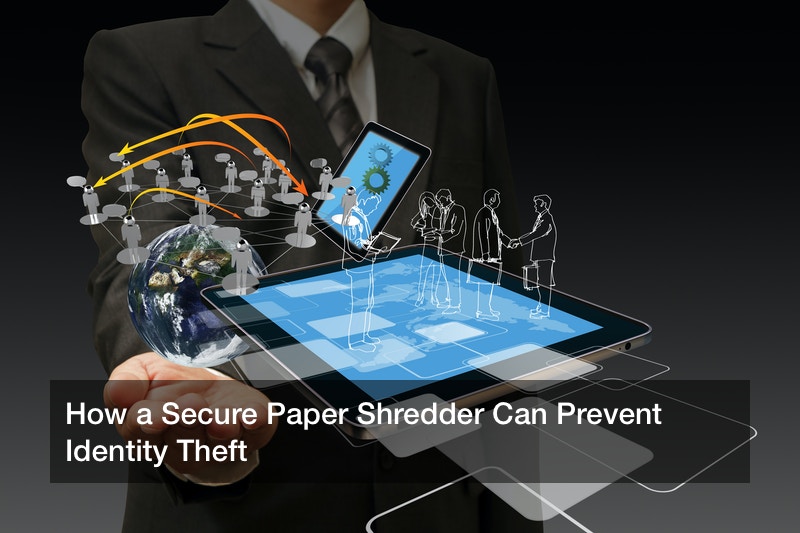
Did you know? According to a 2018 study by the National Telecommunications and Information Administration, nearly half of all internet users in the United States avoid online activities due to privacy and security concerns. For study participants, identity theft was cited as the top concern.
Yet identity theft doesn’t just happen on the mysterious World Wide Web. It’s just as likely to happen because of old-fashioned paper documents that get thrown away or forgotten about.
You probably don’t even realize how much of your sensitive personal information is lying around on papers scattered about your office, or printed in the junk mail that gets delivered to your home. That mail may be junk to you, but it could be highly useful to identity thieves. Even a partial account number could be the last bit of information needed to get into your bank account, and details like your phone number and date of birth can help identity thieves impersonate you and open accounts in your name.
Simply throwing these documents away isn’t enough, as identity thieves routinely go through garbage to find sensitive data. To keep your identity and information safe, you need to get in the habit of using a secure paper shredder to dispose of sensitive documents.
From little desk-side shredders to high capacity paper shredders at work, the following types of documents should always be securely shredded when disposing of them.
Documents That Contain Financial Information
No matter how insignificant a bank statement or credit card offer may seem, an identity thief could use just about anything from a financial institution to wreak havoc in your life. Obviously there are some financial documents you have to keep on hand, but these should be stored in a locked and well-organized filing system, not left lying around. Canceled and voided checks, purchase receipts, and bank statements older than one year should be run through a secure paper shredder and trashed.
Documents Containing Personal Information
You’re probably on a first-name basis with lots of people, but there are far fewer people who know your mother’s maiden name or when you were born. And that’s how it should be, because the more secretive and specific your personal information is, the more valuable it is to identity thieves. Your Social Security number is perhaps the most sensitive personal information you have, so it especially should be kept secret. But it’s not uncommon for your birthdate and at least part of your Social Security number to be printed on official mail.
Any documents you receive from the Internal Revenue Service, the Department of Motor Vehicles, or your bank or employer should be shredded before you throw them away. Travel-related materials can also contain sensitive information.
Junk Mail
Believe it or not, junk mail can be dangerous. Junk mail can often feature a computer barcode on the front which may contain personal information about you if scanned. So any time you get unwanted mail, rather than dropping it in the trash, always dispose of it with a secure paper shredder.
Whether you use a small cross-cut shredder at home or the commercial paper shredders at your office, properly disposing of your personal information could save you a lot of money and trouble.
